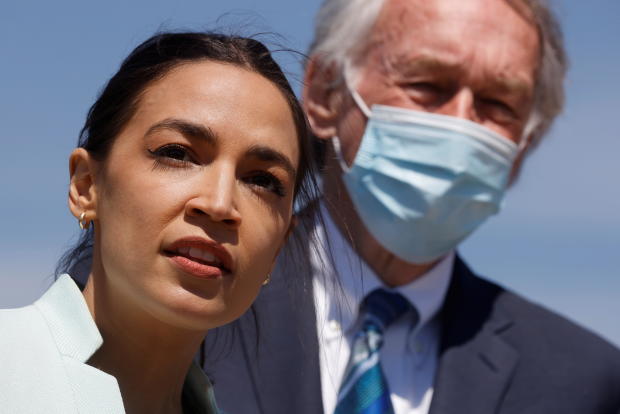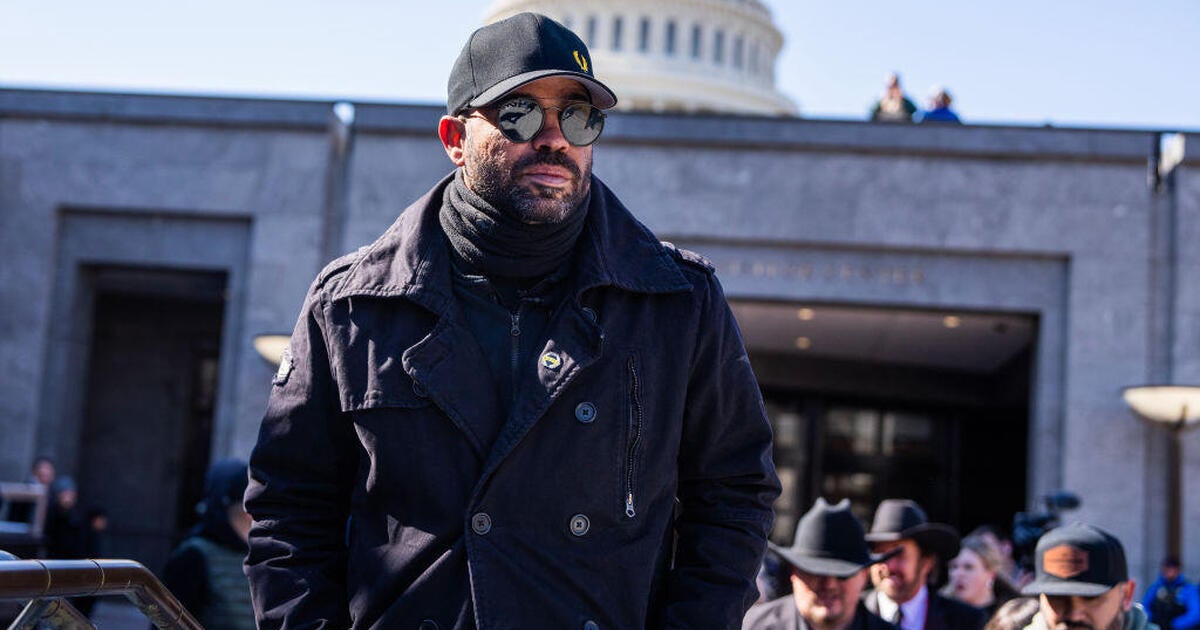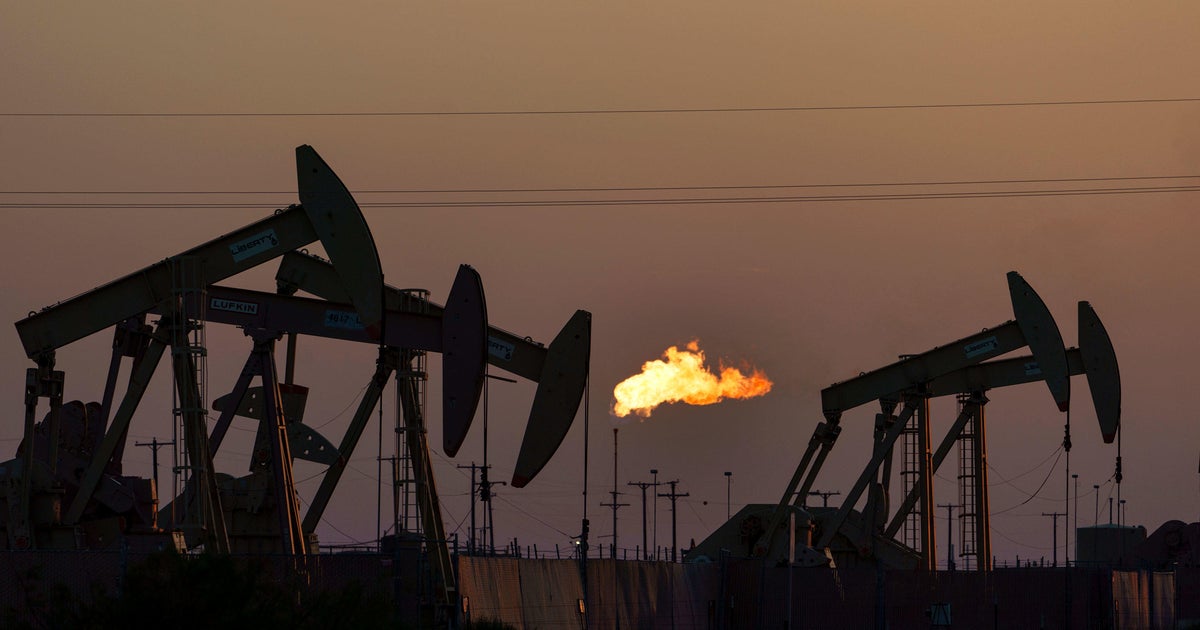Green New Deal advocates see imprint on Biden's climate agenda
Washington — The Green New Deal has been a cause of controversy since it was first introduced in 2019, with progressives touting it as a last-ditch effort to stave off a climate disaster, and conservatives decrying it as government overreach. In right-wing circles, the Green New Deal has become shorthand for supporting socialism.
Although Congress has never voted on the legislation, it nonetheless has an outsized influence in shaping other, more moderate climate change measures, as well as President Biden's ambitious climate agenda.
Senator Ed Markey and Representative Alexandria Ocasio-Cortez, the bill's two lead Democratic sponsors, reintroduced the Green New Deal last month. While it may not advance in Congress, the proposal has become a blueprint for Democrats as they look to address the threat of climate change.
The companion measures introduced in the House and Senate by Markey and Ocasio-Cortez are "simple" resolutions, meaning they would not require the president's signature or carry the force of law. The resolutions call for creating a Green New Deal over the next 10 years, harkening back to the flurry of legislation pursued by President Franklin D. Roosevelt during the Great Depression.
The Green New Deal has several ambitious goals, including a reduction in greenhouse gas and toxic emissions to keep the planet under 1.5 degrees Celsius of warming, creating "millions of good, high-wage unions jobs" and investing in sustainable infrastructure. In a statement to CBS News, Ocasio-Cortez noted that "the dozens of bills that have sprung from this resolution since we introduced it two years ago" all include provisions first introduced by the Green New Deal.
The plan also addresses issues of equity, saying the goal is "to secure for all people of the United States for generations to come: clean air and water, climate and community resiliency, healthy food, access to nature and a sustainable environment."
The resolution insists that the Green New Deal must "promote justice and equity by stopping current, preventing future, and repairing historic oppression of indigenous peoples, communities of color, migrant communities, deindustrialized communities, depopulated rural communities, the poor, low-income workers, women, the elderly, the unhoused, people with disabilities, and youth."
"Our country and planet are facing a number of intersecting crises," Markey said in an interview with CBS News, citing the COVID-19 pandemic, "economic inequality, racial injustice, [and the] ever worsening climate crisis."
Conservatives are quick to point out that the Green New Deal includes provisions that may, on the surface, seem unconnected to climate change. The resolution says that certain steps need to be taken to achieve the goals of the Green New Deal, including providing universal health care and "affordable, safe and adequate housing" for all Americans. It also calls for creating "high-quality union jobs," and guaranteeing a job with "a family-sustaining wage, adequate family and medical leave, paid vacations, and retirement security" for all Americans.
But Markey argued that poverty, racism and food insecurity are not separate issues, but are instead intertwined with climate change.
"Those same social determinants are part of climate change and how they impact those who are most vulnerable," Markey said.
Conservatives also argue that the cost for such a program is far too high. Ocasio-Cortez has said that the Green New Deal would cost $10 trillion over the next 10 years. Some moderate Democrats have also raised concerns about the bill. But even though the Green New Deal is unlikely to pass in Congress, it has been an important agenda-setter for climate change proposals over the past two years.
Markey noted that many of the priorities outlined in the Green New Deal were included in the American Jobs and Families Plans, the president's multi-trillion dollar infrastructure, education and health care agenda. For example, the American Jobs Plan would invest $10 billion in creating the Civilian Climate Corps, which a fact sheet from the White House describes as putting "a new, diverse generation of Americans to work conserving our public lands and waters, bolstering community resilience, and advancing environmental justice."
Markey has already introduced a bill in the Senate to create a Civilian Climate Corps "to help communities respond to climate change and transition to a clean economy." Ocasio-Cortez has introduced the companion bill in the House. Separately, Democratic Senator Chris Coons has introduced his own bill directing the secretaries of interior and agriculture to create a Civilian Climate Corps, but his is smaller in scale than Markey's proposal.
Mr. Biden also pledged last month that the U.S. will cut greenhouse gas emissions by at least half from 2005 levels by 2030, which would put the nation on a path to reach Mr. Biden's goal of achieving a net-zero energy grid by 2035, and a net-zero economy by 2050. The Green New Deal goes just a bit further, calling for global reductions of 40% to 60% in greenhouse gas emissions from 2010 levels by 2030, and net-zero global emissions by 2050.
The Sunrise Movement, a progressive campaign supporting the Green New Deal, said in March when Mr. Biden's American Jobs Plan was unveiled that it was "a massive win for our movement," as his proposal would support creation of climate-related union jobs and reevaluating a clean energy standard.
Markey argued that "we have to go even further" than what Mr. Biden is proposing, but said that the "core principles" of the Green New Deal were apparent in the president's plans.
"From my perspective, the Green New Deal's ideals — jobs and justice and climate action — are in the DNA of President Biden's American Jobs Plan," Markey told CBS News, noting that Mr. Biden's proposal specifically included measures related to climate change, such as investing in green infrastructure and jobs.
Some Republicans appear to agree. GOP Senator Tommy Tuberville said last month that the American Jobs Plan was just "the Green New Deal in disguise."
"They need to disguise it because actual infrastructure improvement is popular and the Green New Deal is not," Tuberville said.
The prospects for the American Jobs Plan in the Senate are still unclear. A group of Senate Republicans introduced a counteroffer to Mr. Biden's proposal last month that cost under $600 billion, and did not specifically include any climate-related provisions. However, Senate Minority Leader Mitch McConnell said Monday that he would be willing to raise the offer to $600 to $800 billion, signaling that Republicans are open to negotiations. The group which proposed the counteroffer is also meeting with Mr. Biden at the White House on Thursday.
Ultimately, Markey said, the climate-related provisions included in the Green New Deal and in the American Jobs Plan were worth the cost.
"We're going to pay a huge long term price if we don't invest now in solutions to the climate crisis," Markey said. "The planet is sick. There are no emergency rooms for sick planets."






